When my parents heard I was coming home to Hawai’i for a visit this June/July they asked if there was anything I particularly wanted to do while I was here.
I had one request.
“Can we hatch ducklings?”
Yes, the thing I wanted more than anything was ducklings on the farm!
Ducklings aren’t guaranteed, and take a bit of organisation. First, you actually need to need them.
Luckily my timing was perfect. My parents realised their current flocks were getting old, and it was high time they started replacing them.
Second, you need some mother ducks to get broody. My parents keep khaki campbell and harlequin ducks for eggs, and muscovy ducks to be foster parents, because muscovy ducks are really good at hatching eggs. Khaki cambells and harlequins…not so much.
Once a muscovy gets broody and begins building a nest my parents have to collect fertilised eggs from the ducks they want to hatch. These eggs go in the incubator. They have to be turned every four hours and monitored for temperature for humidity for a couple of weeks until they are developed enough be candled: checked with a light to see if they are viable and forming a duckling.
Then they wait for the muscovy to leave her nest for food, and quickly switch out the muscovy eggs for the khaki or harlequin eggs from the incubator. Then the muscovy finishes the final weeks of development.
Luckily for me, all these things turned out right, and my parents ended up with two batches of khaki campbell eggs carefully tucked under muscovy foster mums. One was due to hatch four days after I arrived, and the other 9 days later.
And they did!
Here’s Mama ‘Ekahi on her nest:
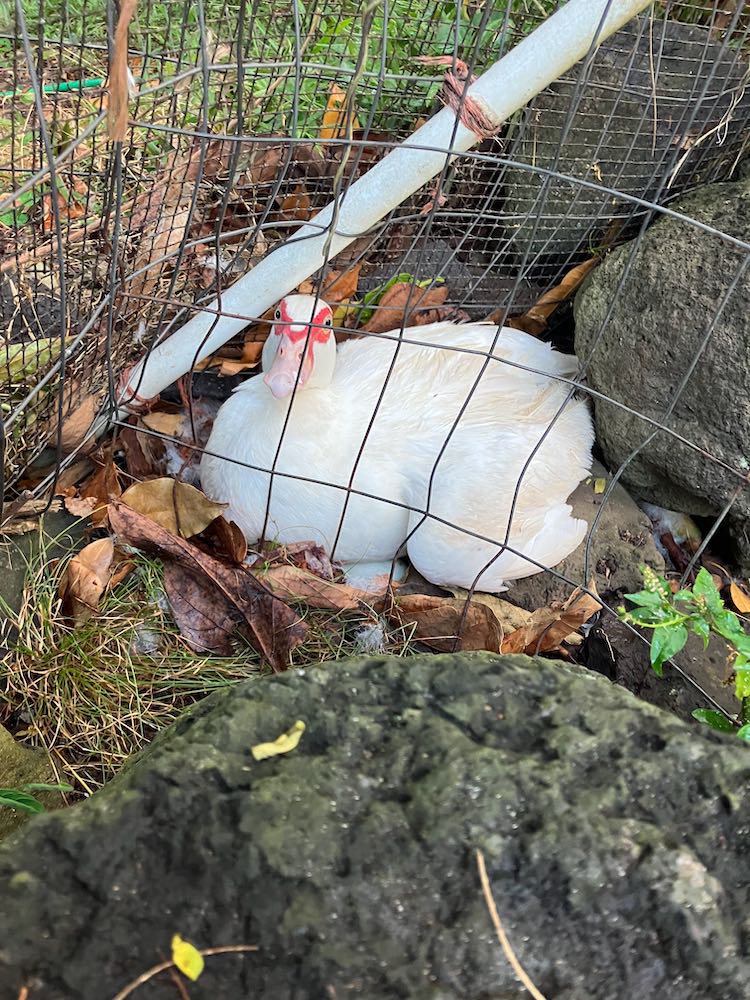
Ducks love corners. The corners of their pens are always their top choice for nests.
And it works!
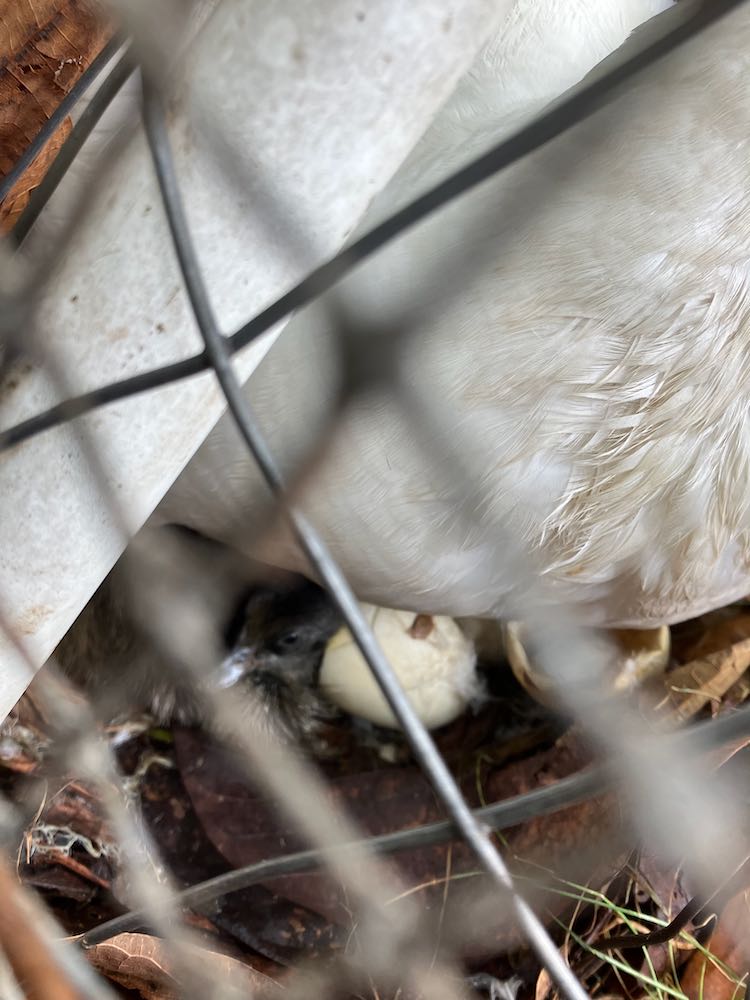
The ducklings hatched on a beautiful sunny Saturday morning.
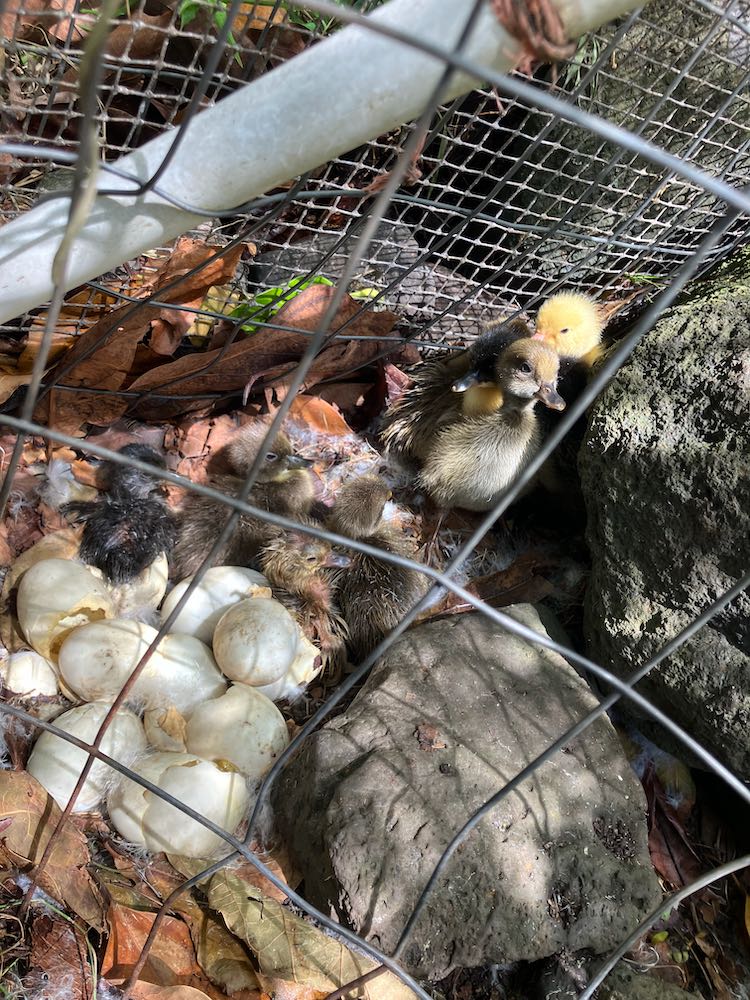
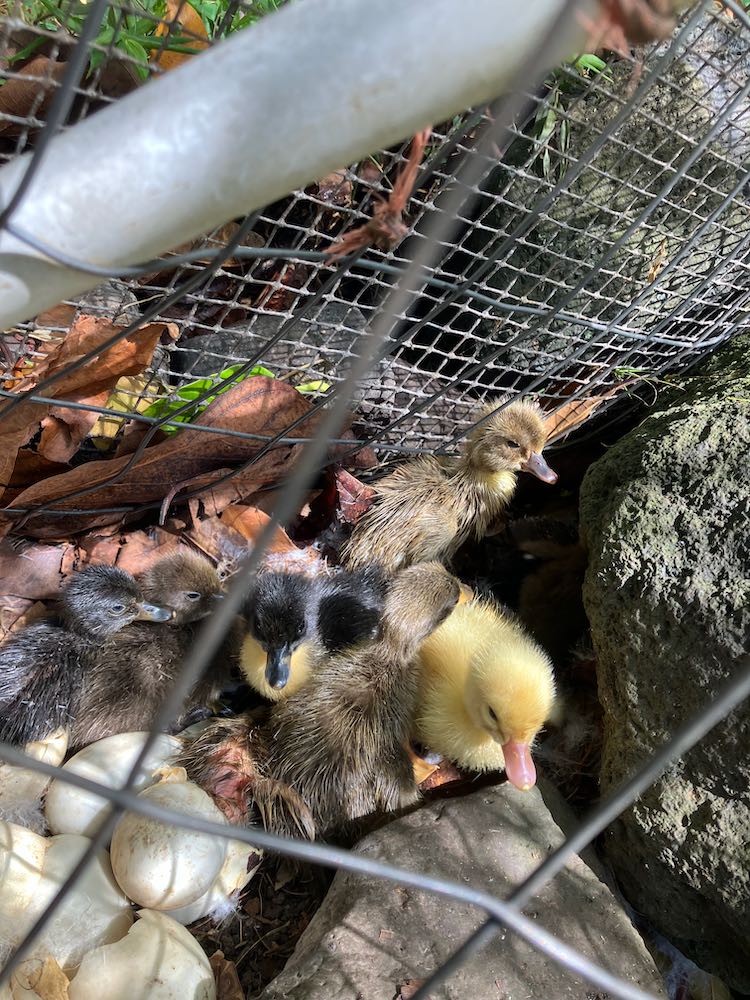
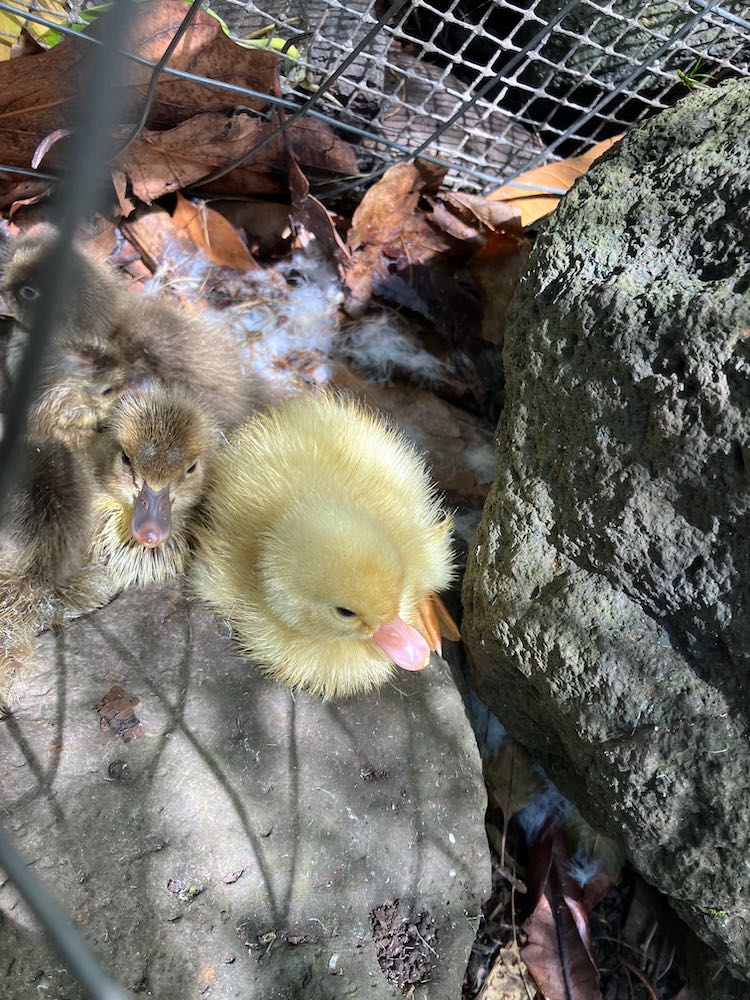
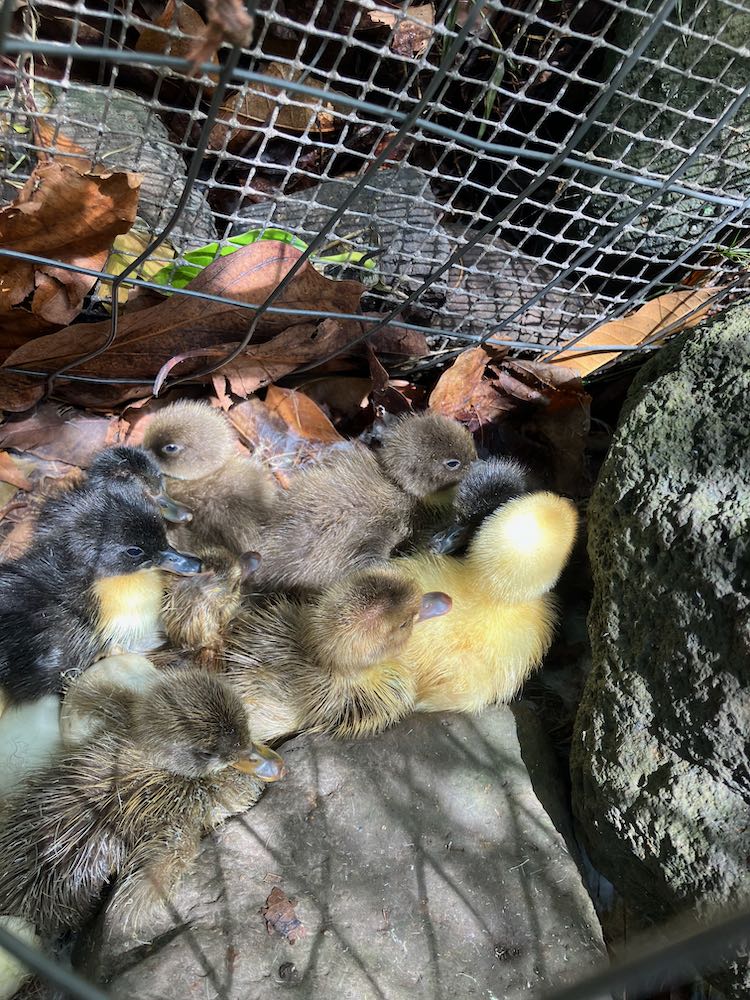
Mama was rather naughty and got off the nest to get some food while the ducklings were still hatching. However, as soon as she realised the paparazzi had turned up she rushed back to protect her babies.
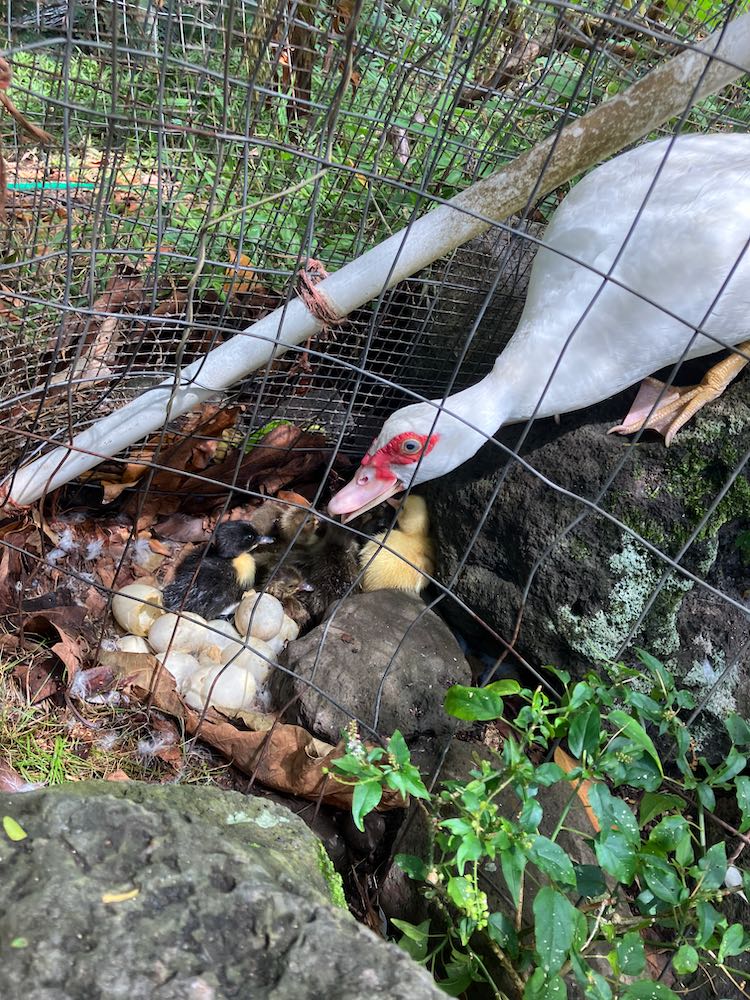
We let Mum and ducklings stay in the nest until the ducklings made their own decision to leave it. Then it was time to collect them and put them in the duckling pen. Hawai’i doesn’t have many predators, but it has enough to put them in danger: feral cats, mongooses, owls and cattle egrets. So we have a cage with fine wire and a roof for when they are still little.
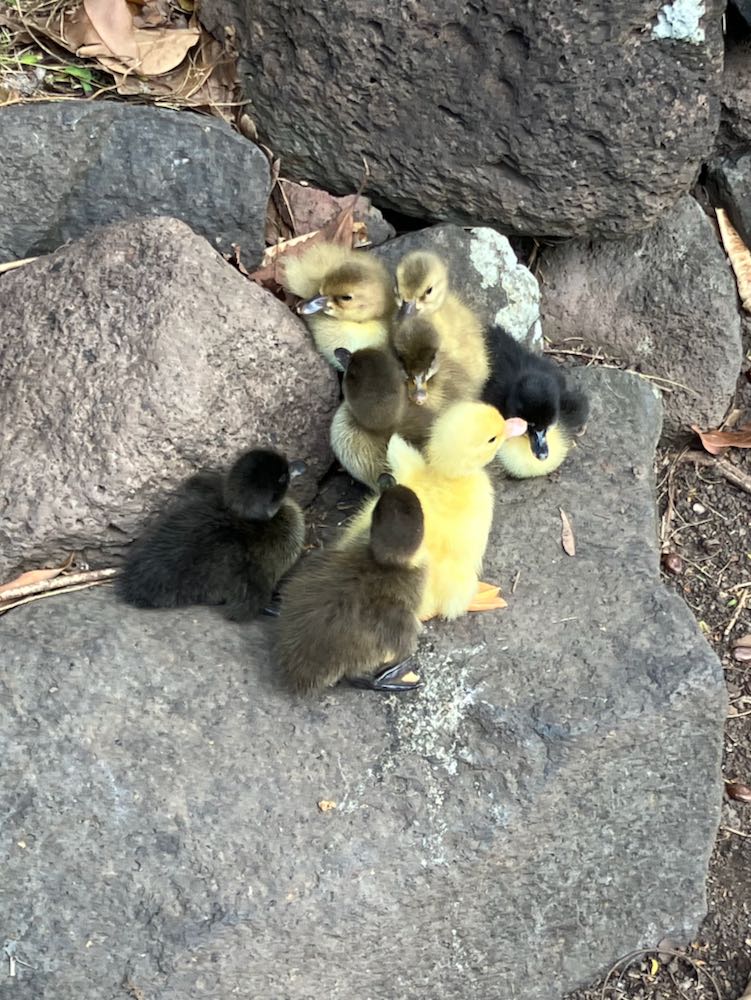
And moving them to the cage gives you an opportunity to cuddle them!
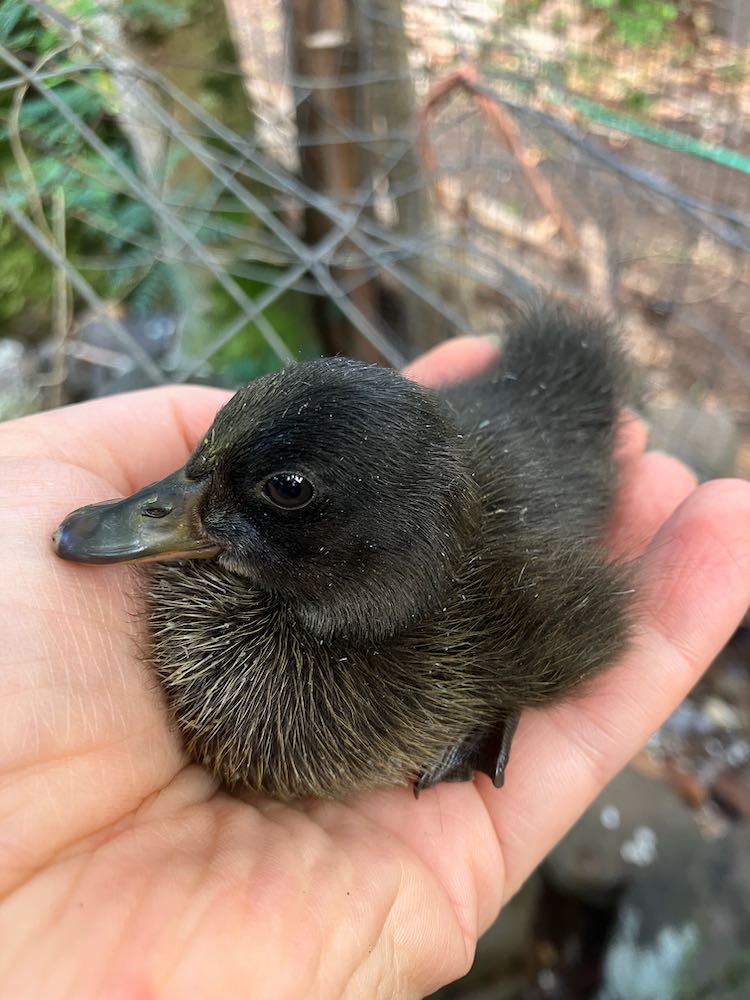
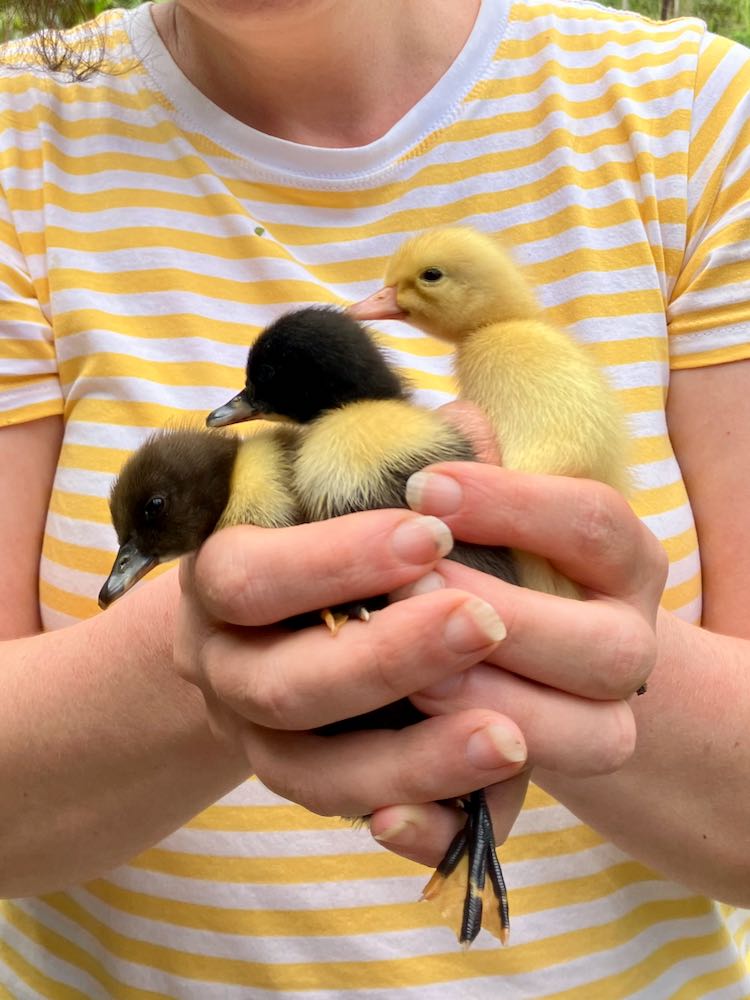
When the ducklings left the nest there were two unhatched eggs left. When I picked them up one of them felt alive. I held it to my ear and was sure I could hear pecking.
So we put it in the incubator (full of muscovy eggs for a muscovy nest)…
And 6 hours later this wee cutie popped out!
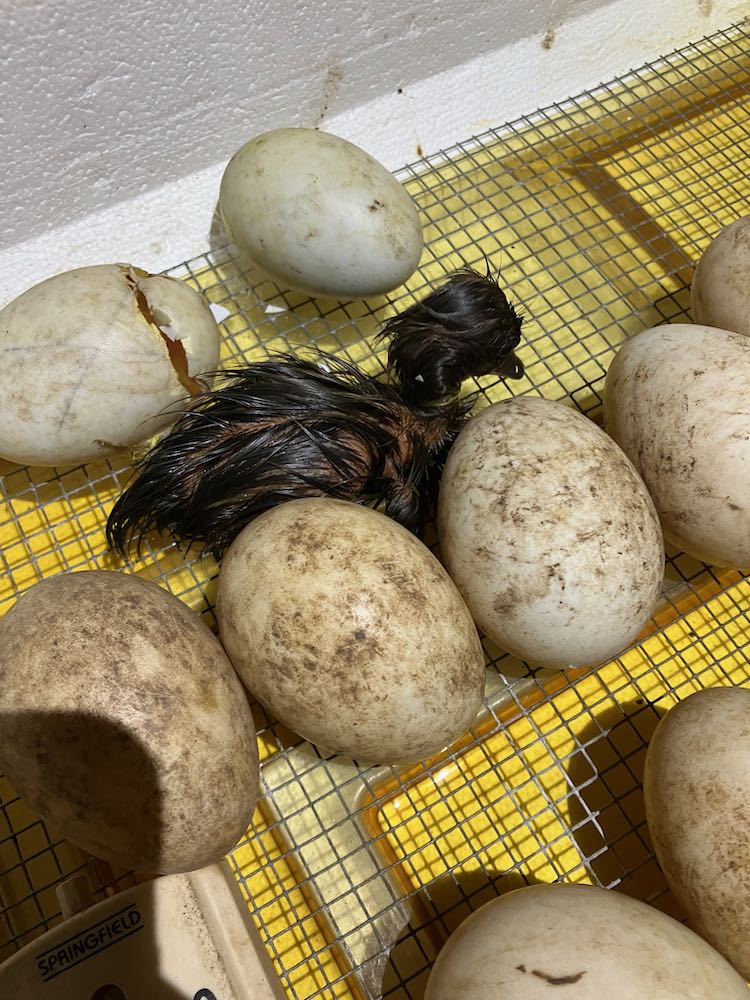
I dubbed her Inky!
She got a rest in the incubator overnight, and the next morning, still sporting a bit of a punk hairdo, joined her siblings in the baby pen.
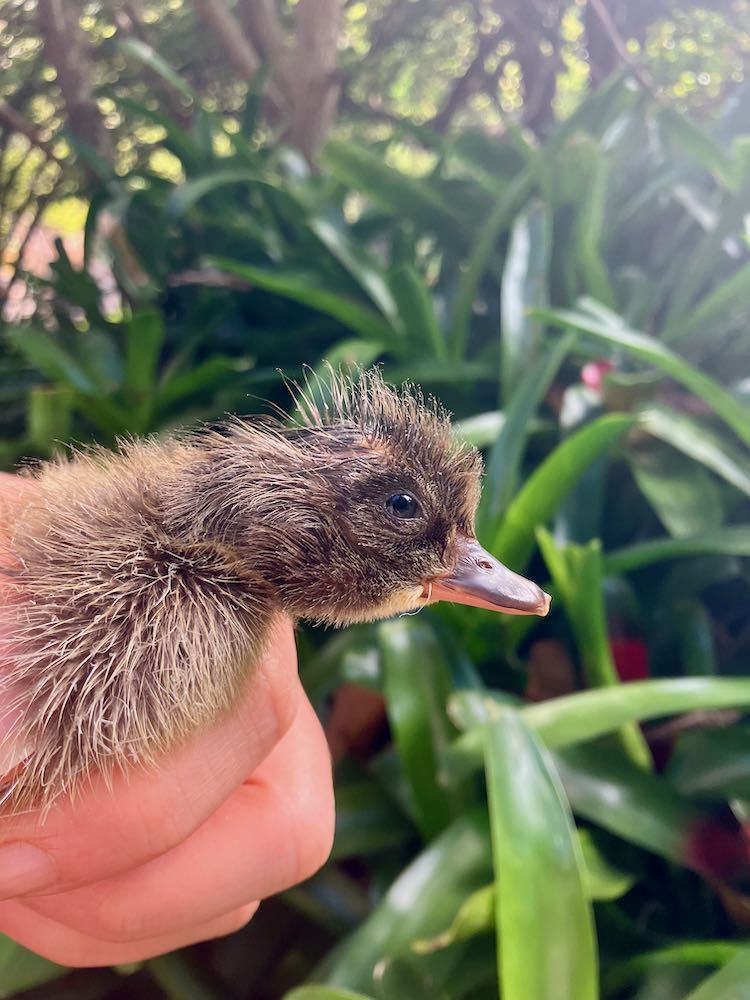
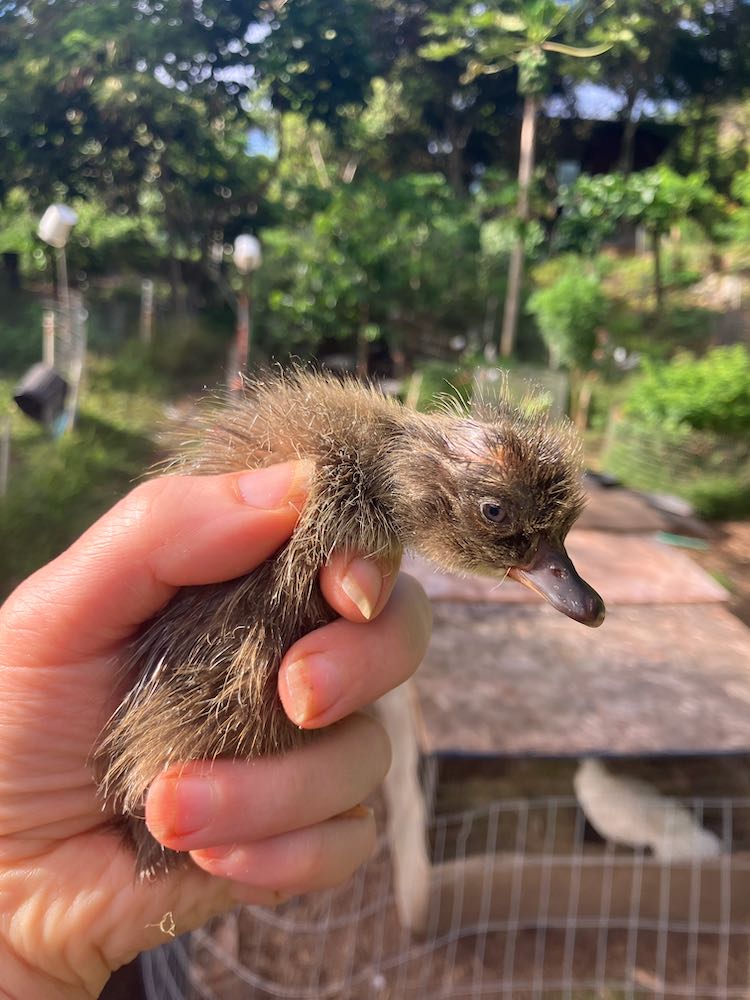
And then there were 10 happy fluffy little ducklings running around under their mother’s proud and watchful eye.
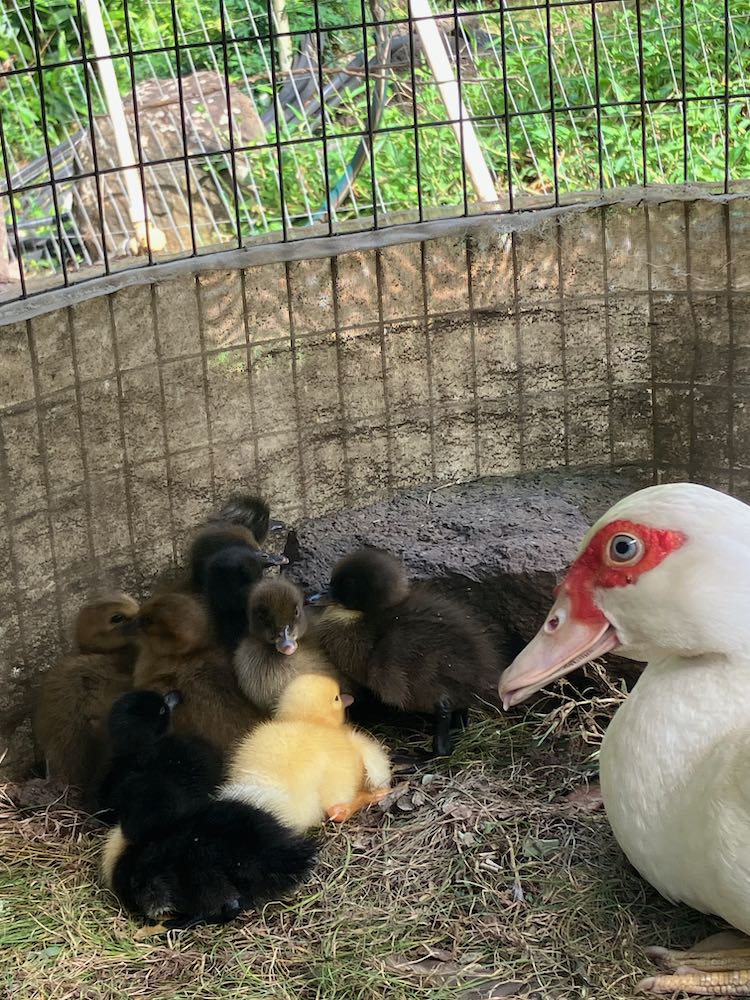
Mama, perhaps ashamed of leaving the nest while they were hatching, is the most protective duck my parents have ever had! She herds her babies into a corner the minute we showed up.
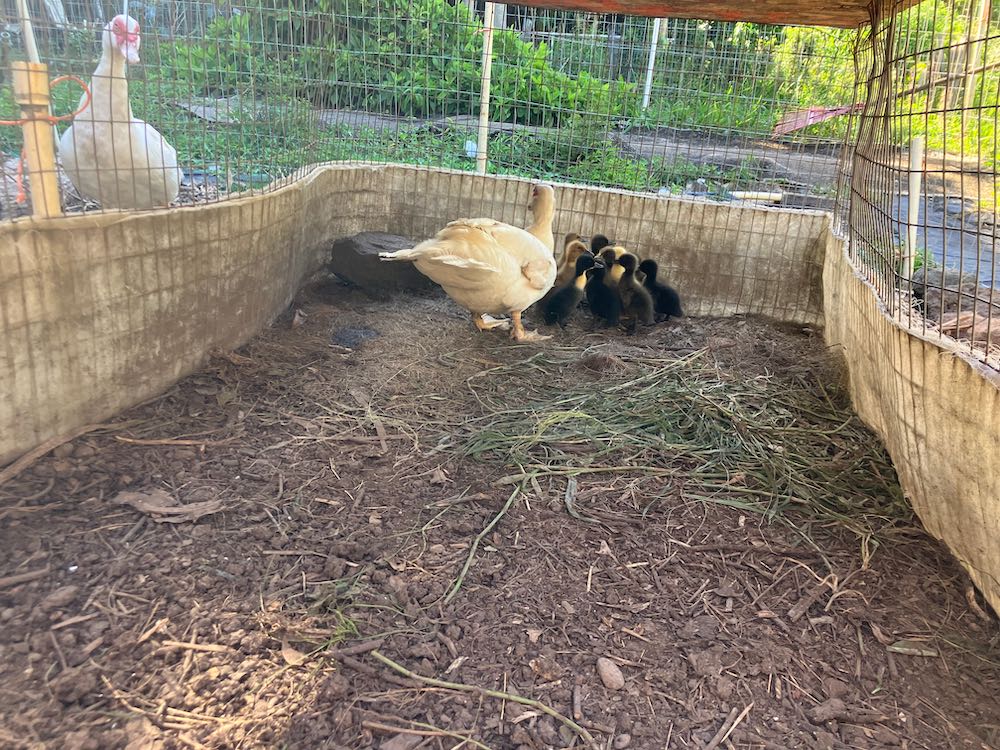
She doesn’t even want to let them come for food unless we step away!
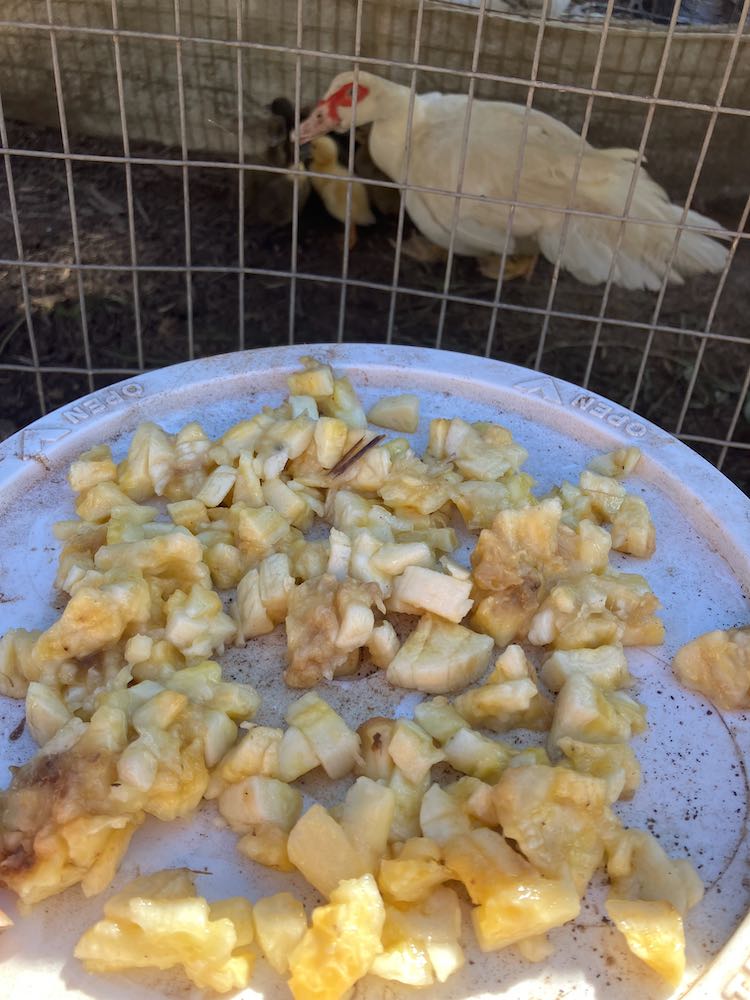
We named the yellow one Zachary Quack, because she’s the naughtiest and most adventurous of the bunch!
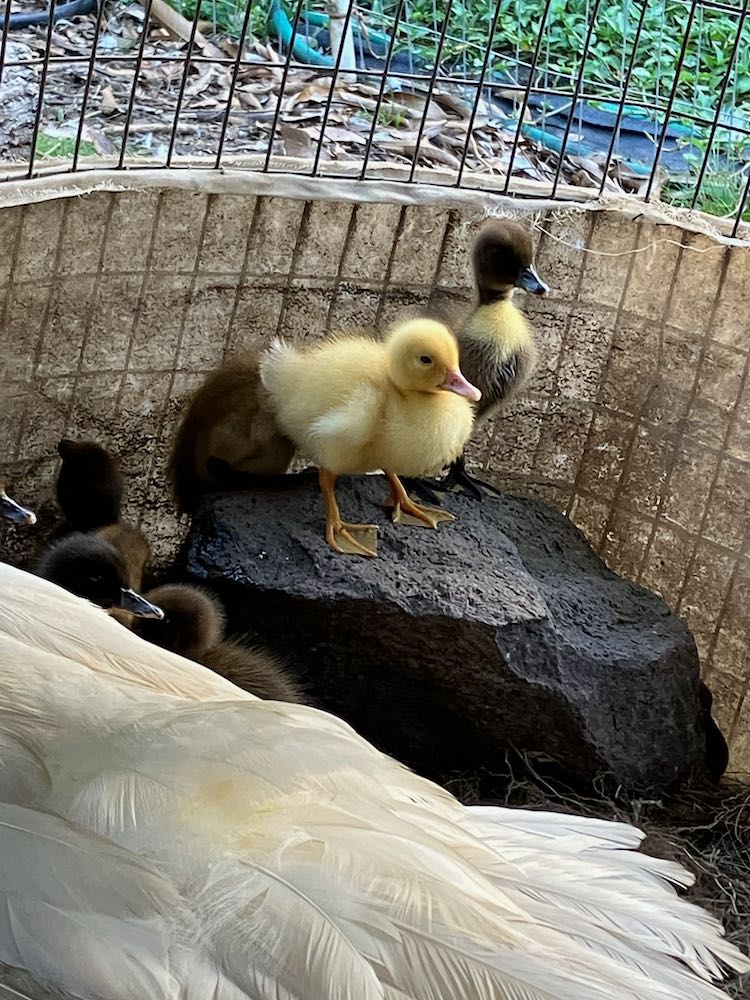
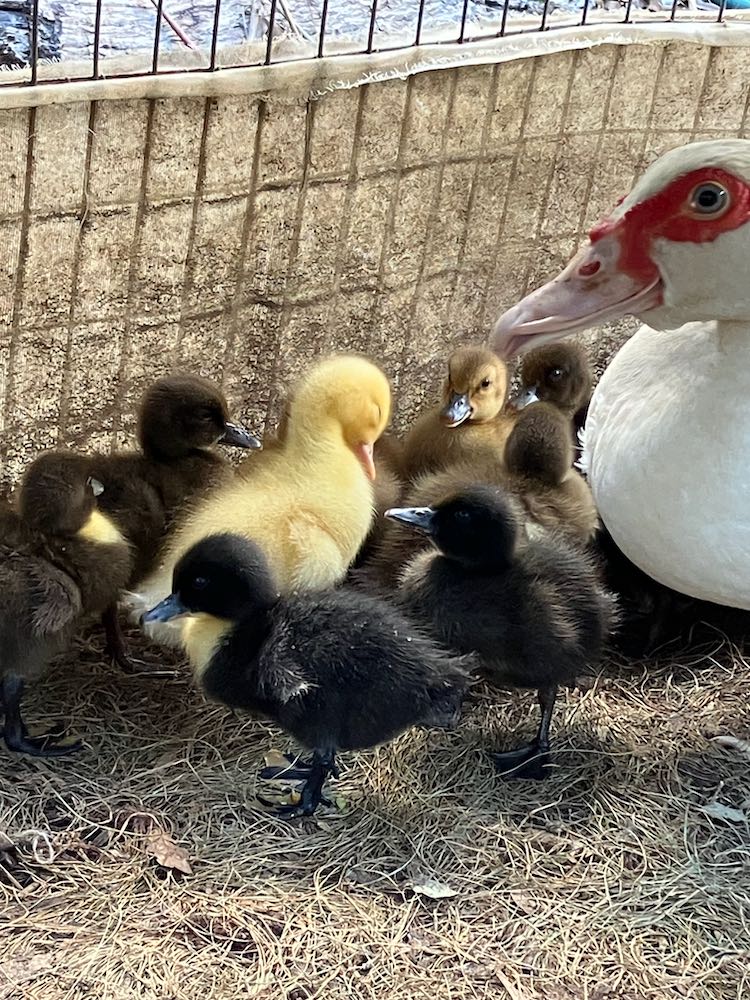
Despite protective mum, the ducklings love to eat…
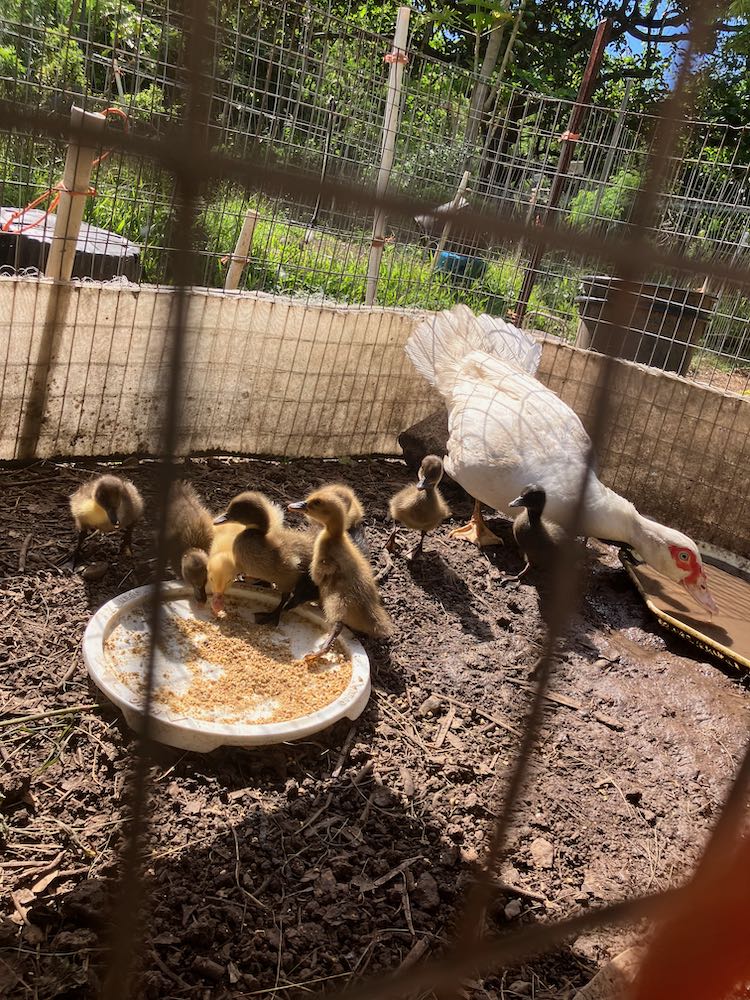
And they are growing!
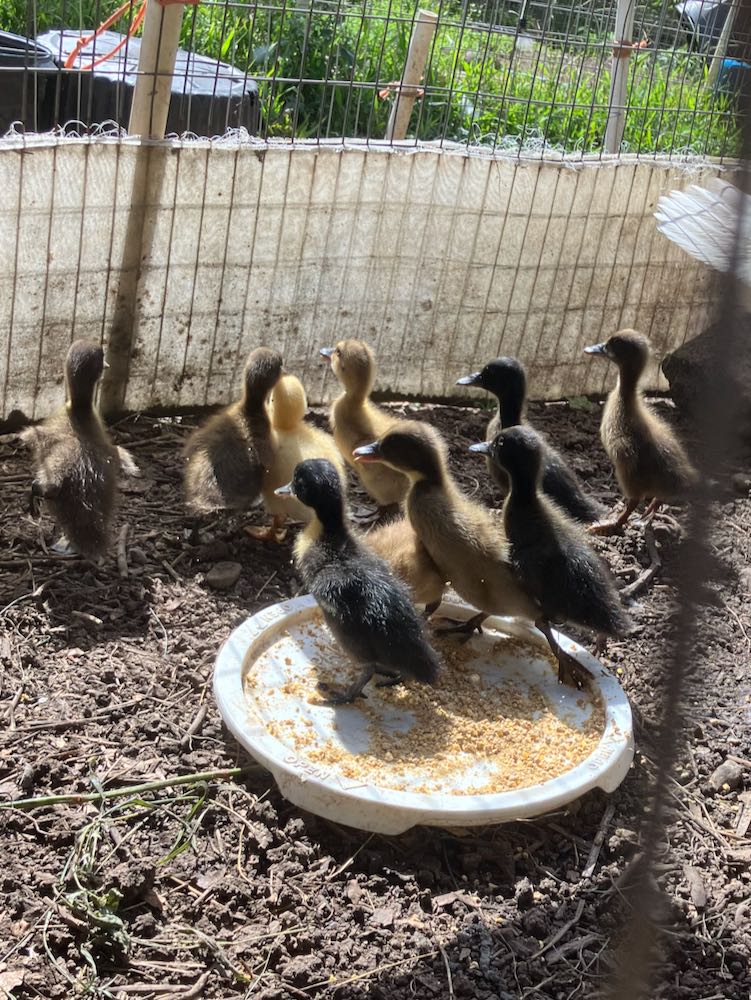
10 days, and they are 3x the size they were when they hatched, and ready to move into the intermediate pen. Just in time for the next batch!
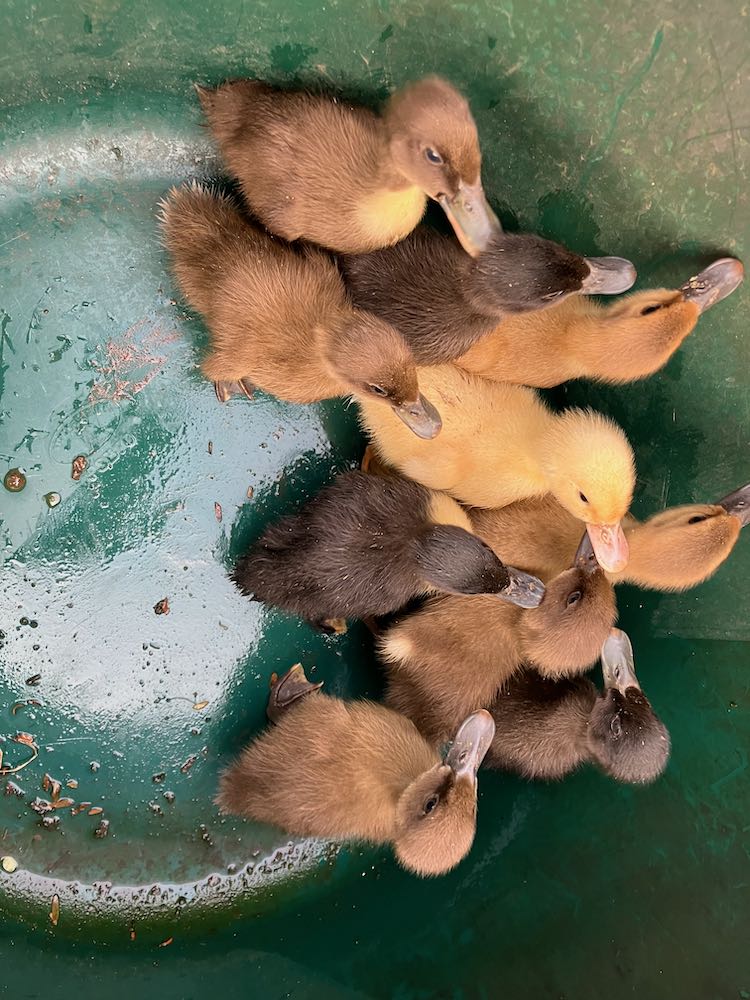
Just a bucket full of happiness…
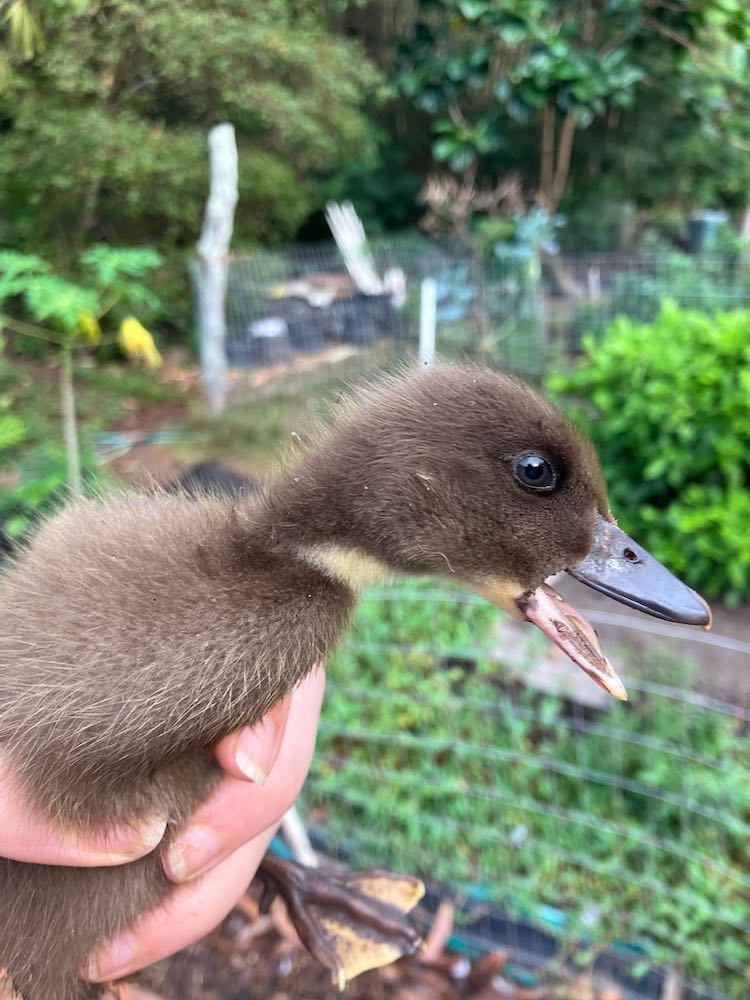
And a final farewell from Inky!

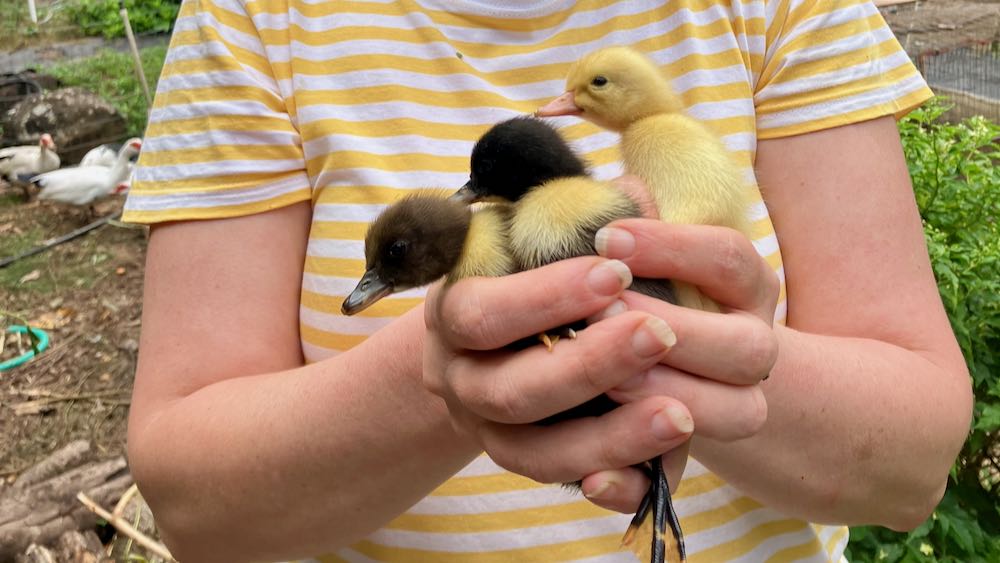
Paparazzi. 😀 They’re cuuuuute!
If you could bottle that feeling. Pure happiness! Aren’t your parents clever, getting all that timing just right? Not easy – getting ducks in a row like that. Oh, dear. You knew I’d say that, didn’t you!
Thank you for the ducklings!
Too cute!
Rate the Ducks: 10/10. Nothing could be fluffier, livelier, or happier!
Oh thank you! I didn’t realize how much I needed fluffy ducklings! Enjoy your visit.
How fun! And how interesting about the different types of ducks and their peculiarities. I love that your family is conscious about how many ducks they need.